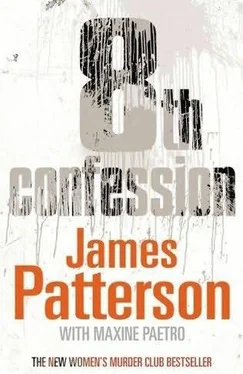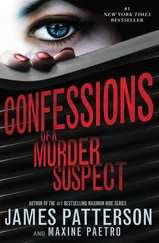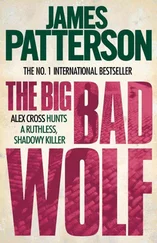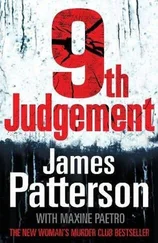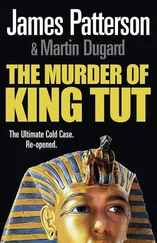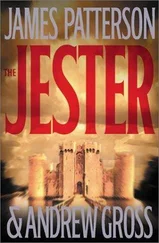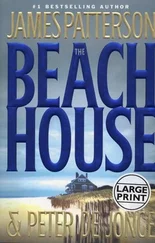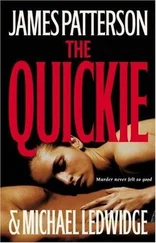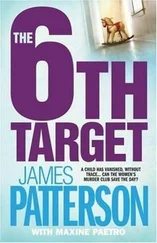Sammy had described the horror, seemingly without understanding what was making me sick. Booker had kept a willing harem of teenage crack dealers, and he’d addicted them to a drug that delivered mind-blowing sex – until they burned out and died.
Booker was a modern-day devil.
Of course someone had killed him.
I asked Sammy where Booker’s van was, and she shrugged again. “I have no idea. Have I done my civic duty? May I go, please?”
Conklin pushed on. “So let me get this straight. Booker was cooking meth in his house?”
“He was for a while, but it was dangerous.”
Sammy sighed long and loud, remained silent for a few seconds, then resumed.
“My whole life dried up when Bagman died. Now my freaking parents are ‘cleaning me up.’ You know what it’s like to drop down a well? That’s my life. I’m going out of my mind.”
“ Uh-huh,” Conklin said. I admired his tenacity. “You told Cindy Thomas that you know who killed Bagman -”
“I never said that.”
“Sergeant?” Conklin said.
“We have enough,” I said, standing up, putting on my jacket.
“You have the right to remain silent,” Conklin said to Sammy. “Anything you say can and will be used against you -”
“You’re arresting me?”
Sammy stiffened as Conklin got her to her feet, clamped the cuffs around her wrists.
“I want my phone call,” she said. “I want my father.”
SAMMY’S FULL NAME was Samantha Pincus, as we found out when her father blew into the squad room like a winter squall.
Neil Pincus was a lawyer who worked pro bono for the down-and-out habitués of the Mission District, where he and his brother had a two-man law practice in the same building that housed From the Heart.
I sized Pincus up as he stood over me at my desk and demanded to see his daughter. He was five ten, a taut 160, late forties, balding, and his scalp was sweating from the steam that was shooting out of his ears.
“You’re holding my daughter for something she said without counsel present? I’m going to sue you each individually and I’m going to sue the city, do you understand? You didn’t read her her rights until she indicted herself.”
“True,” I said. “But this wasn’t a custodial interrogation, Mr. Pincus. Her rights weren’t violated.”
“Sam didn’t know that. You terrified her. What you did was tantamount to torture. I’m a heck of a victims’ rights lawyer, and I’m going to send the two of you to hell.”
Jacobi was watching from behind the glass walls of his office, and twelve other pairs of eyes in the squad room were cast down, sneaking peeks.
I rose to my full five-foot-ten, plus two inches for my shoes, and said, “Take it down a few notches, Mr. Pincus. Right now this is just between the four of us. Help your daughter. Get her to cooperate, and we won’t book her.”
Pincus grunted in disgust, nodded, then followed us to the interrogation room where his daughter was waiting, hands cuffed in front of her. Her father squeezed her shoulder, then wrenched a chair out from the table and sat down.
“I’m listening.”
“Mr. Pincus, by her own admission, your daughter is a junkie and a dealer,” I said. “She was involved with Rodney Booker, also known as Bagman Jesus, now violently deceased. Samantha was not only selling crank for Booker but she told a very credible source that she knows who killed him. She’s a material witness, that’s why we’re holding her, and we need her to tell us who Booker’s killer is.”
“I’m not admitting she was dealing,” Pincus told us, “but if she was, she’s not doing it now and she’s not using either.”
“Well, everything’s fine, then,” I snapped.
“Listen, her mother and I are on her. Early curfew. No cell phone. No computer. She volunteers in a soup kitchen so she can see how bad life can get – and she works underneath my office.”
Pincus lifted his daughter’s cuffed wrists so I could see her watch. “It’s a GPS. She can’t go anywhere without me knowing. Sam has become a model of sobriety. I give you my word.”
“Is that all, Mr. Pincus?”
Samantha wailed.
“Where’s your decency?” Pincus spat. “Booker was scum. He was dealing to kids who sold to kids. Not just to my daughter but to other girls. Many good girls. We reported him.”
“Who’s ‘we’?” I demanded.
“The Fifth Street Association. Look it up. I filed a complaint on behalf of the association in February, and again in March. Again in April. The cops did nothing. We were told, ‘If you don’t have proof, fill out a form.’ ”
“You own a gun, Mr. Pincus?”
“No. And I’m asking you for a break. Release Samantha into my custody. Jail, even for a night, could destroy this child.”
We agreed to let the girl go, gave Pincus a warning not to let her leave town.
As soon as the two had left the squad room, Conklin and I went to our desks and called up Pincus’s name in the database. He didn’t have a sheet, but Conklin found something else.
“Neil Pincus has a license to carry, and he’s got a registered Rohm twenty-two,” Conklin said over the top of his monitor. “A cheap dirty little pistol for a cheap dirty little lawyer. That son of a bitch lied.”
CONKLIN AND I were at the door to Pincus and Pincus, Attorneys- at-Law, by noon, and we had four other cops with us. When the door opened, we pushed past the reception area, and I handed Neil Pincus a warrant.
I said, “Keep your hands where I can see them.”
Pincus blinked stupidly. “What?”
“Did you think we wouldn’t find out about the gun?”
“That… thing was stolen,” Pincus said. “I reported it.” The lawyer pushed back his chair, said, “I kept it in here.”
I opened a desk drawer, bottom right, saw the metal gun box. I lifted the lid, stared at a cardboard box for a Rohm.22. The box was empty.
“You kept this gun box locked?”
“No.”
“Where’d you keep the ammo?”
“Same drawer. Look. I know that’s a violation, but if I was going to need the gun, I was going to need it fast. Sergeant, I rarely opened the box,” said Pincus. “It could have been stolen any time in the last six months. You turn your back for a second around here, take a phone call or take a piss -”
I stepped in front of Pincus, jerked open the rest of his desk drawers as Conklin did the same to brother Al’s matching desk in the next room.
Then the six of us jacked open the file cabinets, tossed the supply room, looked under the cushions on the cracked leather sofa. After a short while, the Pincus brothers settled down, talked over us to their clients, acted normally and entirely as though we weren’t there.
When we came up empty, Conklin and I visited both of the Pincus homes, one in Forest Hill and the other on Monterey Boulevard. Good neighborhoods, places where bad kids didn’t happen. We met the two nice wives, Claudia and Reva, both of whom had been asked by their husbands to cooperate.
We acquainted ourselves with the insides of the Pincus family closets, cupboards, hope chests, and tool chests, and the Pincus wives voluntarily let us search their cars.
Their places were as brilliantly clean as white sheets hanging from the line on a sunshiny day.
Executing those warrants had been physically and emotionally draining. I was wrung out and depressed, and we had nothing to show for our work.
Had Neil Pincus’s gun been used to kill Bagman?
I still didn’t know, but if I had to guess where that gun was now, I’d say the shooter had dropped it off the bridge sometime after Rodney Booker’s execution. And at present it was being buried by the shifting sands at the bottom of San Francisco Bay.
Читать дальше
